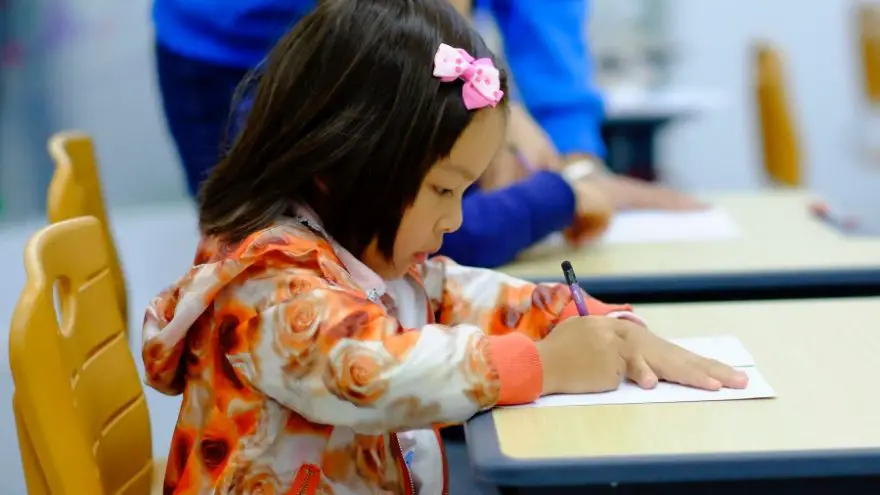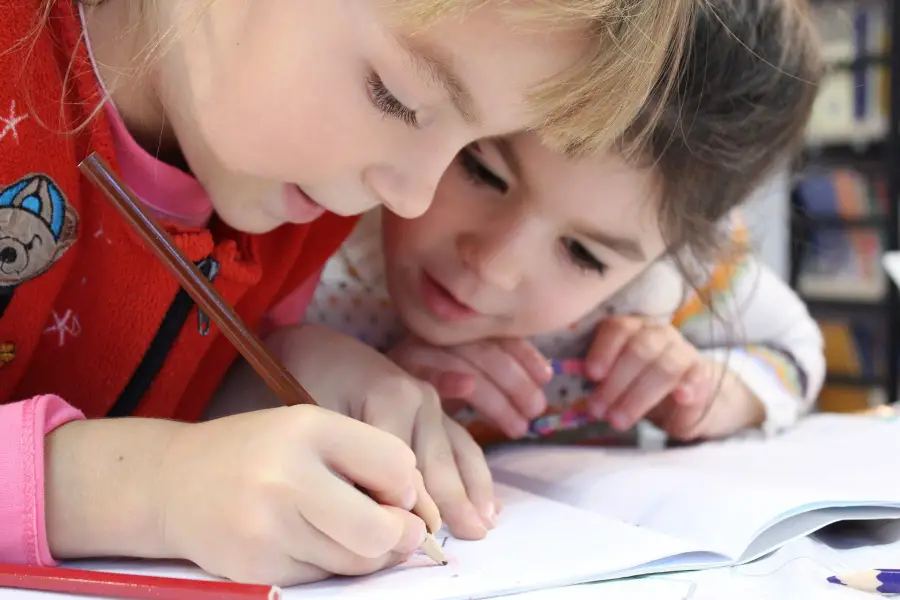Helping Your Child Cope with School Anxiety

School anxiety isn’t a new concept, kids that have been attending school for years probably all felt some type of anxiety when they first started to attend. The difference is that there wasn’t the information on school anxiety years ago like there is now. Every mom probably puts her preschooler on the bus the first day or drives them to preschool. All small children become anxious the first time they are separated from their parents, because it’s foreign to them and they don’t know why their parents took them to this place.
As children become accustomed to school they begin to develop social anxiety from various things that occur at school. It could be other children teasing them, or it could be a teacher who is scary to them. The key is to prepare your children by talking to them ahead of time about when they are going to be starting school and tell them why they are starting school. Most toddlers can understand parents by now, so they have some idea that they are trying something new.
All parents have the old “I don’t want to go to school”, commonly known as school refusal from their child at one point or another. This comment has been said for years and new information is telling parents that kids who don’t feel comfortable going to school, are experiencing school anxiety. School anxiety is very common these days and some even require medication to cope. Back to school anxiety is also more predominant, than it was in past years. This is very common with preschoolers.

Schools are putting more pressure on younger children to start learning and studying at home with extra homework for small children. There are many kids that just can’t cope with this added stress. Parents have to figure out if their kids are honestly experiencing school phobia or just want attention. This is why it’s important to start your youngsters in school and prepare them for the day so the transition is easier for them.
Why Is School Anxiety Becoming More of an Issue?
September 11th, 2001, was the start of more school anxiety symptoms, in the school systems across America. Parents were anxious and all the schools were on lockdown. Small children getting ready for school experienced watching the news before they left for school. Some parents kept their children home and kids fed off their anxiety. The news is very powerful and that was a terrifying day for many. In addition, the world has changed in 18 years, and so has some of the cultures in the United States. Years ago, kids went to kindergarten and came home a few hours later.
In today’s society, they are separated from their parents all day and extremely exhausted when they get home. The first grade used to be the year kids started school all day, so they had a year to prepare and grow older and feel less exhausted.

The expectations for kids have changed in school districts of today, and they expect more work out of these small students. Some school districts gage a child’s passing to the next grade level on their ability to take a type of test that is timed and long. In addition, by fourth grade, children are now doing over two hours of homework a night. These kids are struggling because they have not yet reached the ability to pace themselves. This, in turn, causes anxiety and soon your child is complaining constantly of a tummy ache. This is their way of trying not to go to school.
Disabilities
Then there are the students who haven’t been diagnosed yet with a learning disability, therefore, they have problems in a certain area of learning and the teachers think the child is lazy. This also will cause children to develop anxieties about attending school. This will also cause the child not to want to attend class. This can be a very grey area for parents and their children, which is frustrating.
How Can Parents Tell if Their Child Is Truly Anxious?
If your kids seem to be stressed out constantly or show anxiety symptoms by isolating themselves and showing fear, then your child is experiencing true school anxiety. When your kids are young and keep asking their parents for comfort and reassurance, or ask them to come to school, you know your child is experiencing school anxiety. This is when the tummy aches start or the headaches and they also become very needy suddenly.
Some have problems sleeping and want to sleep with their parents. Eventually, this anxiety can turn into a huge fear and they will refuse to attend school. If they do go to school, they begin to act out and cry uncontrollably for their parents. Your child isn’t trying to disrespect your rules, they are plainly terrified of school.

How Can Parents Overcome This with Their Child?
Parents should make sure that you take your young kids to orientation at school before they start school, so they can meet their teachers. Walk around the school and show them the bathrooms, the artwork, and anything else that peaks their interests. Don’t start talking about school too far in advance, because your child most likely will forget that conversation. Summer is a good time to start talking about school and what is expected out of a student.
If your child has issues or social anxiety, plan some playdates with kids that will start school with them. If your child is really young, let them play alone for a few minutes and watch from another room. This helps them adjust with less anxiety.
Try role-playing with preschoolers, because even though they have the cognitive skills, they still lack the social skills. Try using dolls, puppets, stuffed animals and both of you can plan a way to act out a new school situation with their toys. You can also cover some of their fears if they express them to you by play acting a situation out.

If you are really worried, talk to the administrators before school starts, because you just might have a good chance of being able to pick the right teacher for your child. Talk to the teacher when you can and help her understand how she can help your child adjust to school.
Don’t Be Afraid to Reward Your Child
If your child has overcome a major hurdle and is now attending school with enthusiasm, then give them a reward. Don’t be afraid to tell them how proud you are that they overcame this anxiety issue. Use stickers on a chart, watch a movie together or spend time together talking about school. Special events are also nice to do with your child for a reward. Always remember to tell them you love them and you are only a phone call away.







